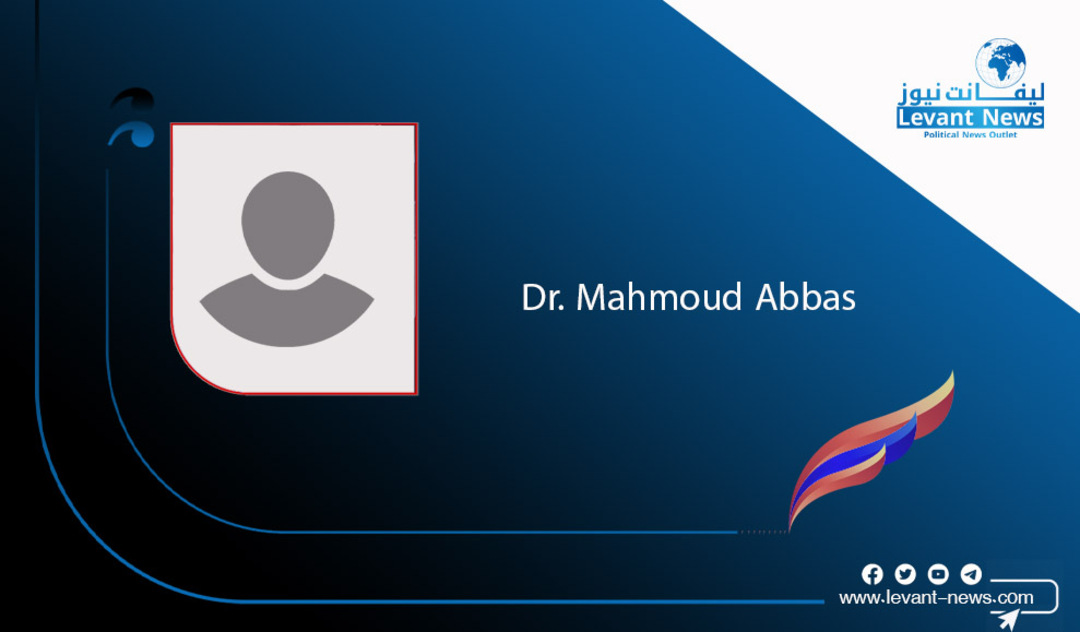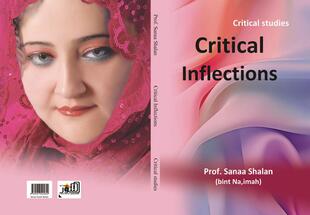-
Regarding Ibrahim Mahmoud's Episode: An Important Dialogue Worth Following

In a calm meeting where literature blended with thought, the program "Faces" on Al-Shams channel, hosted by the well-known writer Jan Dost, presented a special episode featuring prominent Kurdish writer and critic Ibrahim Mahmoud. The dialogue was not ordinary in terms of form and content; rather, it was closer to a reflective space within the layers of questions that occupy the Kurdish conscience and intersect with the fates of Eastern peoples.
The dialogue was successful in its general lines, not only due to the issues raised but also because of the style in which they were presented. Jan Dost began the discussion with precise questions, through which the guest articulated his vision in a coherent critical style. Ibrahim Mahmoud, despite his occasional verbal restraint, emerged as a critic and writer with a mature analytical sensibility rooted in a philosophical and intellectual background refined over decades of accumulated knowledge, yet without overwhelming the listener with an exhibitionist or elitist tone.
However, the episode was not without observations worth noting. The political dimension overshadowed a considerable amount of time, and this time could have been dedicated to exploring broader horizons in thought, literature, and cultural criticism—fields in which the guest possesses deep insights. Yes, his political discourse was not merely rhetorical; it was woven through a cultural perspective that addresses the relationship between authority and society. Yet, this political inclination, coupled with the repeated narrative of victimhood, limited the opportunity to delve into deeper levels of purely intellectual questions, especially on issues such as language, identity, and the transformations of Kurdish selfhood in the present.
Another aspect that caught attention was the excessive focus on the issue of translation. The writer seemed to rely heavily on it as a revitalizing tool, which is a debatable point in light of the current digital landscape, where translation has become accessible to any average reader through advanced tools and techniques. This extensive discussion about translation, without addressing its qualitative challenges or the distinctions between translation and creation, made it seem like a central project in an era where translation has lost much of its traditional resilience, an aspect that warranted a deeper examination.
Additionally, the suggestion by some to turn Ibrahim Mahmoud's writings into subjects for extended discussions, while seemingly valid, requires a more realistic approach. The man does not present a complete philosophical project that can be dissected by a strict methodology, but rather offers free critical insights that belong more to the opposition than to structured construction. This, despite its significance, does not always lend itself to being treated as an institutional intellectual framework.
Nevertheless, it cannot be denied that what the guest offered in this episode was rich and thought-provoking, and deserves to be the nucleus of renewed dialogue, not as a means of sanctification, but with the aim of continuing to uncover the postponed questions that Ibrahim Mahmoud knocks on from unconventional angles.
There is no doubt that this episode created a rare space in the Kurdish media scene, bringing together a writer who possesses the ability to listen and guide, and a critical writer who practices bold analytical deconstructive criticism in a calm yet penetrating tone.
Wishing them both success, with the hope that this type of dialogue opens itself to multiple voices, not to sanctify the experience, but to create a new cultural tradition that broadens thought, not for rhetoric, but for questions. True thought, like a river, is not confined to a point; rather, it is defined by its flow.
Dr. Mahmoud Abbas
You May Also Like
Popular Posts
Caricature
BENEFIT Sponsors BuildHer...
- April 23, 2025
BENEFIT, the Kingdom’s innovator and leading company in Fintech and electronic financial transactions service, has sponsored the BuildHer CityHack 2025 Hackathon, a two-day event spearheaded by the College of Engineering and Technology at the Royal University for Women (RUW).
Aimed at secondary school students, the event brought together a distinguished group of academic professionals and technology experts to mentor and inspire young participants.
More than 100 high school students from across the Kingdom of Bahrain took part in the hackathon, which featured an intensive programme of training workshops and hands-on sessions. These activities were tailored to enhance participants’ critical thinking, collaborative problem-solving, and team-building capabilities, while also encouraging the development of practical and sustainable solutions to contemporary challenges using modern technological tools.
BENEFIT’s Chief Executive Mr. Abdulwahed AlJanahi, commented: “Our support for this educational hackathon reflects our long-term strategic vision to nurture the talents of emerging national youth and empower the next generation of accomplished female leaders in technology. By fostering creativity and innovation, we aim to contribute meaningfully to Bahrain’s comprehensive development goals and align with the aspirations outlined in the Kingdom’s Vision 2030—an ambition in which BENEFIT plays a central role.”
Professor Riyadh Yousif Hamzah, President of the Royal University for Women, commented: “This initiative reflects our commitment to advancing women in STEM fields. We're cultivating a generation of creative, solution-driven female leaders who will drive national development. Our partnership with BENEFIT exemplifies the powerful synergy between academia and private sector in supporting educational innovation.”
Hanan Abdulla Hasan, Senior Manager, PR & Communication at BENEFIT, said: “We are honoured to collaborate with RUW in supporting this remarkable technology-focused event. It highlights our commitment to social responsibility, and our ongoing efforts to enhance the digital and innovation capabilities of young Bahraini women and foster their ability to harness technological tools in the service of a smarter, more sustainable future.”
For his part, Dr. Humam ElAgha, Acting Dean of the College of Engineering and Technology at the University, said: “BuildHer CityHack 2025 embodies our hands-on approach to education. By tackling real-world problems through creative thinking and sustainable solutions, we're preparing women to thrive in the knowledge economy – a cornerstone of the University's vision.”
opinion
Report
ads
Newsletter
Subscribe to our mailing list to get the new updates!




















